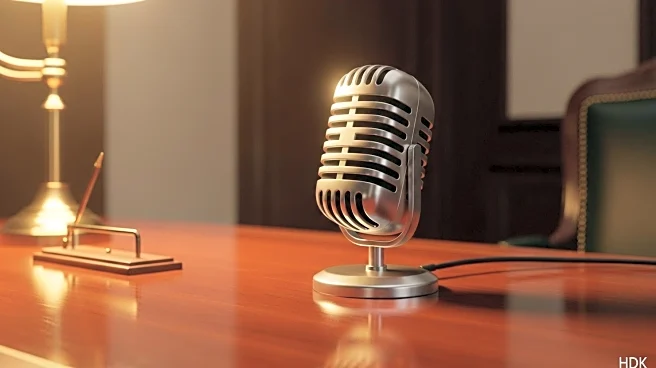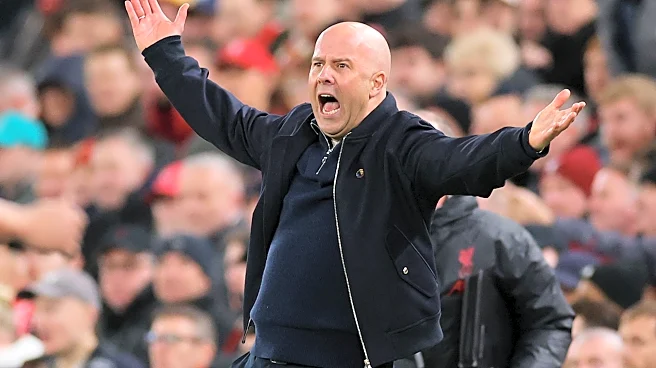What is the story about?
What's Happening?
President Donald Trump is reportedly in discussions with CBS News to participate in an interview on '60 Minutes.' This development follows a previous lawsuit filed by Trump against CBS, claiming deceptive editing in an interview with then-Vice President Kamala Harris. The lawsuit resulted in a $16 million settlement paid by CBS's parent company, Paramount. The White House is insisting that any interview with Trump be aired unedited. Bill Whitaker, the correspondent involved in the Harris interview, is expected to conduct the segment with Trump. The talks for the interview were initially planned during Trump's visit to New York for the UN General Assembly and the Ryder Cup but were delayed due to scheduling conflicts.
Why It's Important?
The potential interview with President Trump on '60 Minutes' is significant as it could influence public perception and media relations. The insistence on an unedited broadcast reflects ongoing tensions between Trump and mainstream media outlets, particularly regarding how interviews are presented. This situation also highlights the broader implications of media editing practices and their impact on political narratives. The outcome of these talks could set a precedent for future interactions between political figures and media organizations, affecting how interviews are negotiated and conducted.
What's Next?
If the interview proceeds, it could lead to heightened scrutiny of CBS's editorial practices and potentially influence future media engagements with political figures. The outcome may also affect CBS's corporate strategies, especially with the anticipated changes in its editorial leadership under David Ellison and the acquisition of Bari Weiss's news site. Stakeholders, including media analysts and political commentators, will likely monitor the situation closely to assess its impact on media transparency and political discourse.
Beyond the Headlines
This development underscores the complex relationship between media organizations and political figures, particularly in the context of editorial integrity and public trust. The insistence on an unedited interview raises questions about the balance between journalistic freedom and the rights of interview subjects. Additionally, the situation may prompt discussions on the ethical responsibilities of media outlets in accurately representing political figures and their statements.















